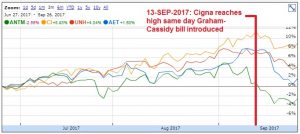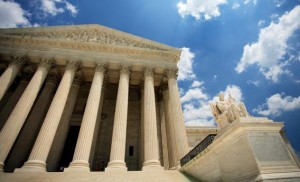Finding The Public In A Complex Society
In the last two posts we looked at Dewey’s idealized form of democracy. In Chapter 4 of The Public And Its Problems, Dewey desribes some of the obstacles citizens face in identifying themselves as a public, as a group capable of organizing to solve its problems. The obstacles he describes never went away.
He begins by pointing out that our form of democracy originated in small communities, based on town meetings and elections of neighbors to carry out the solutions reached through those meetings. Waves of industrialization and immigration created giant urban communities. Absorbing and socializing those groups into urban American life went quite well considering the enormous difficulties. But:
In spite of attained integration, or rather perhaps because of its nature, the Public seems to be lost; it is certainly bewildered. The government, officials and their activities are plainly with us. … But where is the public which these officials are supposed to represent? How much more is it than geographical names and official titles? P. 149-50; fn omitted.
The effort to adapt the politics of the small town to densely packed urban areas worked well enough to prevent the nation from falling into civil strife, but was not robust enough to deal with urban problems let alone national issues. Dewey describes the drop in the percentage of the population who voted and the cynicism that many show to the process.
Those still more inclined to generalization assert that the whole apparatus of political activities is a kind of protective coloration to conceal the fact that big business rules the governmental roost in any case. Business is the order of the day, and the attempt to stop or deflect its course is as futile as Mrs. Partington essaying to sweep back the tides with a broom. P. 151; fn omitted]
This accords with what he wrote in Chapter 3. We are not so much a nation of self-motivated individuals as a interchangeable group of “standardized units”, a phrase with echoes of neoliberal Homo Economics. These units are driven into corporations or other huge organizations for economic purposes not voluntarily but by the need to make a living.
[Corporations] are so massive and extensive that they determine the most significant constituents of the public and the residence of power. Inevitably they reach out to grasp the agencies of government; they are controlling factors in legislation and administration. Not chiefly because of deliberate and planned self-interest, large as may be its rôle, but because they are the most potent and best organized of social forces. P. 142.
This obstacle is exacerbated by the existence of political machines and other groups who insert themselves between individuals and the state; and use this position for their own ends.
Dewey identifies other things standing in the way of a public trying to recognize itself.
1. Political parties don’t do policy, and policy is never the issue in elections. He points to the fact that child labor laws are supported by a large public majority, but neither party makes them an election issue, or pushes the necessary Constitutional Amendment. This reminds us that SCOTUS struck down Child Labor Laws in a typical anti-democratic action by a 5-4 majority of conservatives.
2. Elected officials are rarely held to account by the electorate for specific votes or positions. Instead, the primary determinant seems to be a general consensus about the overall state of things.
3. Public relations experts manipulate the attention and energy of the public to focus on non-political matters. This leaves the experts and their sponsors to manage political activity for their own ends. Even non-corrupt leaders use theories developed for altogether different purposes and developed in different circumstances.
4. Mass societies lead to the disintegration of small communities where people develop the habit of participation in politics.
5. Mass societies create complex problems beyond the ability of a non-specialist to grasp. Of course, the consequences of the decisions made by specialists are clear. But see point 2.
6. It is difficult to apply even a simple political principle in a large society. Dewey gives two examples. Southerners claim to favor small government. They also claim to want to prevent drinking alcohol. But Prohibition requires a larger government. Farmers want small government, but also want fair railroad freight rates. That requires a large government bureaucracy.
7. Apathy sets in when it becomes difficult to identify issues, as is the case in a complex society, especially when traditional political slogans lose their meaning. People vote against one or the other party based on adherence to worn-out ideas when they bother to vote.
8.
The increase in the number, variety and cheapness of amusements represents a powerful diversion from political concern. The members of an inchoate public have too many ways of enjoyment, as well as of work, to give much thought to organization into an effective public. Man is a consuming and sportive animal as well as a political one. P. 167.
9. Earlier American communities were stable. But technological forces create instability, mobility and constant change. “Steam and electricity have done more to alter the conditions under which men associate together than all the agencies which affected human relationships before our time.” P. 169. This makes if difficult to formulate a sense of solidarity that is necessary to create a public.
These factors have confused citizens and made it difficult for them to recognize themselves as a public with problems that require organization to create a solution. Dewey offers his thoughts on solutions in chapter 5.
Discussion
The problems Dewey identifies are worse today that they were 100 years ago. Occasionally catastrophes have forced us to demolish those obstacles, and face up to life and death situations that can only be solved as a group. After WWII, there was a brief time, the time of my childhood, when the problems had not completely overwhelmed a sense of national community, when we slowly began to see real changes. It was short-lived, partly destroyed by endemic racism and an immoral war, and partly by a group of right-wing rich people and their economic theorist enablers. It was finished off by yet another economic nightmare. Catastrophic stagflation in the mid- to late 70s was met with neoliberal solutions, and the same for the following economic crashes, through the Great Crash and the Great Recession. We were distracted, unable to protect ourselves while our nation slowly fell apart.
Then came the pandemic. While we were locked down we saw the horrifying killing of George Floyd, which came on the heels of so many other police killings of unarmed Black people. We saw massive protests often met with state and right-wing violence. We saw the horror of the second and third waves of the pandemic, and the disgusting behavior of the former guy and the antics of his incompetent administration. We watched his absurd lawyers hack at our election. Then we saw the Capitol Insurrection. There weren’t any distractions, no manipulations that could hide it. [1] We were able to see ourselves as a public.
I hope this is a permanent change.
========
[1] I first saw this observation in a tweet from Jemele Hill (@jemelehill). Added on edit.









